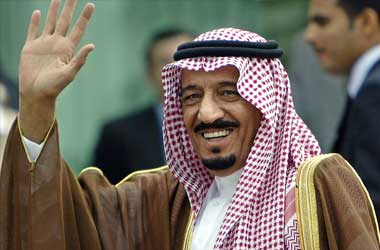King Of Saudi Arabia Announces Subsidy Cuts For 2016 Budget
 The Middle East has had a strong economy during the last decade due to it abundant oil reserves but things are slowly starting to chance. The Kingdom of Saudi Arabia (KSA) generated over 73 percent of its revenue from the oil industry but expects oil revenues to drop in 2016 and King Salman has released a new budget for 2016 which looks to shift KSA’s dependence on the oil industry.
The Middle East has had a strong economy during the last decade due to it abundant oil reserves but things are slowly starting to chance. The Kingdom of Saudi Arabia (KSA) generated over 73 percent of its revenue from the oil industry but expects oil revenues to drop in 2016 and King Salman has released a new budget for 2016 which looks to shift KSA’s dependence on the oil industry.
The King recently released a 2016 budget which looks to slowly reduce its subsidies and begin to sell small stakes in its government entities to deal with the stagnated oil industry. The new budget will reduce its deficit from 367 billion riyals in 2015 to 326 billion riyals in 2016 and defense spending will constitute the largest expenditure in 2016 as an estimated 213 billion riyals are directed to defense related matters.
KSA also expects its overall revenues to dip in 2016 and drop to 513.8 billion riyals when compared to the 608 billion riyals generated in 2015. This was the first budget released by King Salman who took the throne in January 2015 and allowed his son the Deputy Crown Prince Mohammed bin Salman to head his economic council. The council decided to release some of the financial pressure by issuing bonds for the first time in nearly 10 years and also draw on KSA’s reserves.
During the last 12 months, King Salman and his cabinet have made a number of key changes to revive the Saudi economy and reduce the financial crunch. Some of those changes included changing the royal succession process, revamping the cabinet and joining ministries to make it more effective.
However the volatile situation in the Middle East due to terrorism and the war in Yemen continues to have a serious impact on KSA’s economy and spending. The king expects this trend to continue into 2016 and wants to make sure that that the defense ministry has all the financial resources required to protect the KSA.
In a statement, Nasser Saidi, president of Nasser Saidi & Associates said
In terms of defense expenditure in particular there’s the burden of the war in Yemen. The outcome for 2016 depends on “the course of the war in Yemen, oil prices, how much will subsidies actually get reduced, how effective are they in reigning in public spending and rationalizing some of the spending on large projects, and finally how good are they at reigning in current spending
